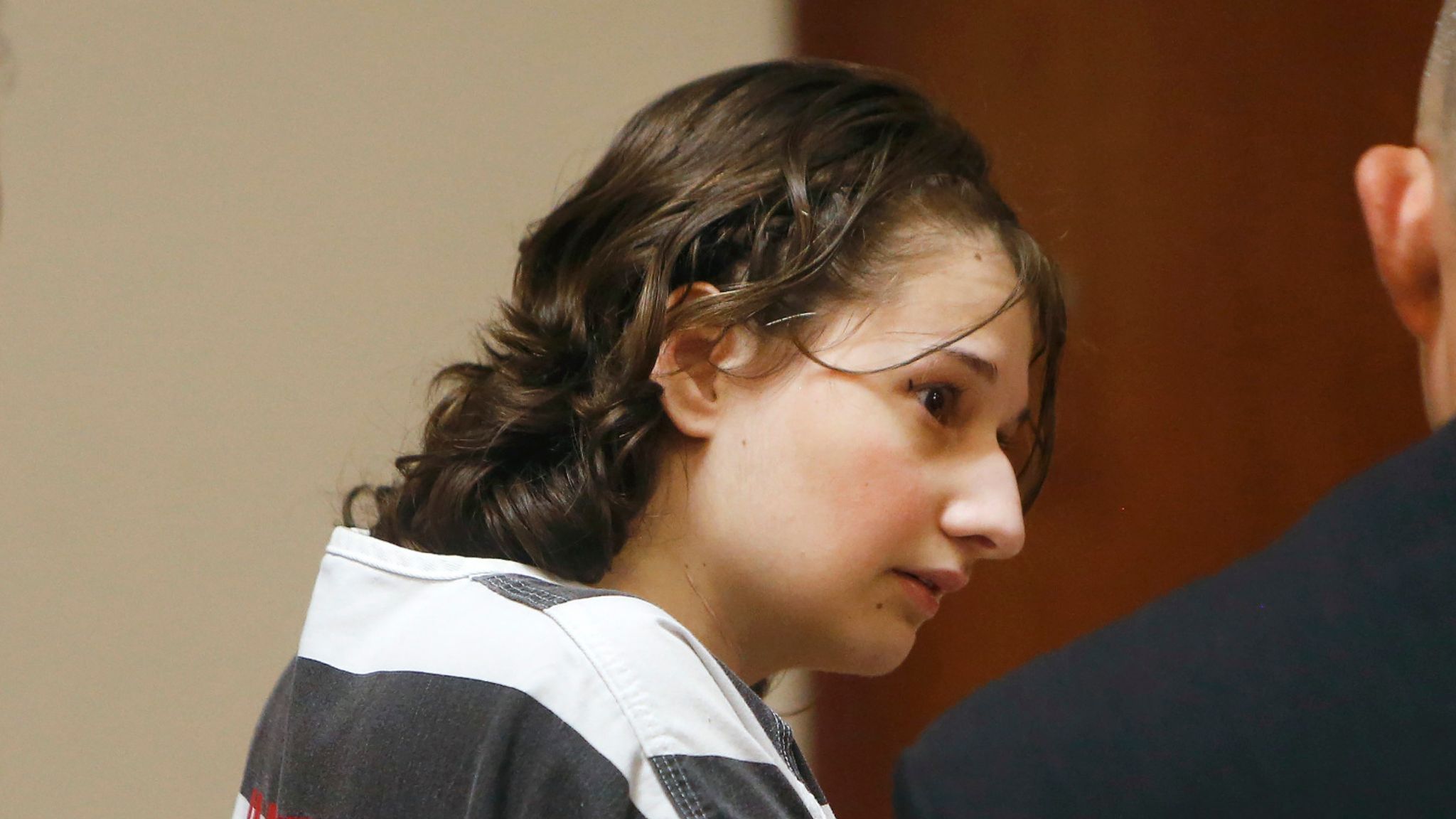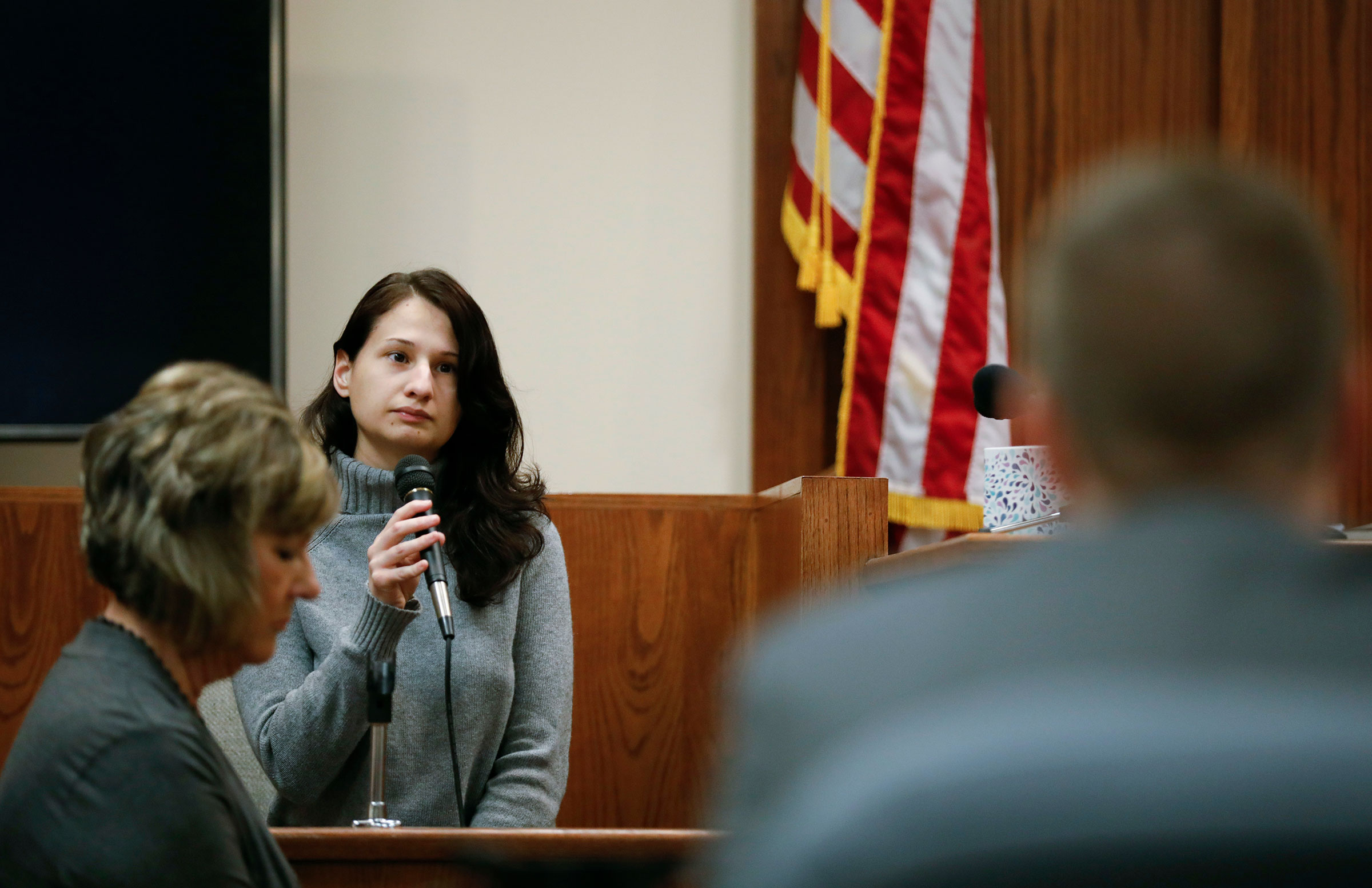The Gypsy Rose Blanchard trial captured global attention as it unraveled a harrowing tale of abuse, manipulation, and medical fraud. This case delved deep into the dark world of a mother-daughter relationship that was anything but ordinary. The story of Gypsy Rose Blanchard is not just a legal drama but a profound exploration of how far someone can go to control another person's life.
At its core, the Gypsy Rose Blanchard trial exposed the lengths to which Dee Dee Blanchard went to keep her daughter under her control. The case involved fabricated illnesses, elaborate deceptions, and a tragic end that shocked the public. As the details unfolded, it became clear that this was not just a legal battle but a fight for truth, identity, and justice.
This article will delve into the intricacies of the Gypsy Rose Blanchard trial, exploring the background, the trial proceedings, and the implications of this case. We will also examine the psychological aspects and the impact it had on society's understanding of abuse and manipulation.
Read also:Adam Sandlers Parents Exploring The Life And Legacy Of His Beloved Family
Biography of Gypsy Rose Blanchard
Early Life and Background
Gypsy Rose Blanchard was born on January 12, 1991, in Springfield, Missouri. From a young age, she was diagnosed with a series of severe medical conditions by her mother, Dee Dee Blanchard. These conditions included muscular dystrophy, leukemia, and Tourette's syndrome, among others. However, as the truth emerged, it was revealed that many of these diagnoses were fabricated by Dee Dee.
Below is a table summarizing some key details of Gypsy Rose Blanchard's life:
| Full Name | Gypsy Rose Blanchard |
|---|---|
| Date of Birth | January 12, 1991 |
| Place of Birth | Springfield, Missouri |
| Parents | Dee Dee Blanchard (Mother) |
| Occupation | Student, later became a public figure due to her case |
Overview of the Gypsy Rose Blanchard Trial
The Gypsy Rose Blanchard trial began in June 2016, following the murder of Dee Dee Blanchard. Gypsy Rose, along with her then-boyfriend Nicholas Godejohn, was charged with the murder. The trial became a focal point for discussions about mental health, abuse, and the complexities of human relationships.
Key Events Leading to the Trial
- Dee Dee Blanchard's extensive history of fabricating her daughter's illnesses.
- Gypsy Rose's growing desire for independence and freedom from her mother's control.
- The involvement of Nicholas Godejohn, who allegedly played a pivotal role in the murder plot.
The Role of Dee Dee Blanchard
Dee Dee Blanchard's role in the case is central to understanding the trial's complexities. Her actions, which included lying about her daughter's health conditions, were not only a form of abuse but also a form of medical fraud. The extent of her deception was staggering, as she went as far as staging seizures and falsifying medical records.
Dee Dee's Manipulative Tactics
Dee Dee employed several manipulative tactics to maintain control over Gypsy Rose:
- Confining Gypsy Rose to a wheelchair despite her being physically capable of walking.
- Isolating her from the outside world to prevent any external influences.
- Using the medical community's trust to perpetuate the illusion of Gypsy Rose's illnesses.
The Legal Proceedings
The legal proceedings of the Gypsy Rose Blanchard trial were complex and emotionally charged. The prosecution had to prove that Gypsy Rose and Nicholas Godejohn were complicit in the murder of Dee Dee Blanchard. The defense, on the other hand, argued that Gypsy Rose was a victim of years of abuse and manipulation.
Read also:Lilly Drummond Leaked Unveiling The Truth Behind The Controversy
Key Evidence Presented in Court
Several pieces of evidence were crucial in shaping the outcome of the trial:
- Text messages between Gypsy Rose and Nicholas Godejohn discussing the murder plan.
- Medical records that exposed Dee Dee's fabrications.
- Testimonies from healthcare professionals who treated Gypsy Rose.
Psychological Aspects of the Case
The psychological dimensions of the Gypsy Rose Blanchard trial are as fascinating as they are disturbing. The case highlights the profound impact of long-term abuse on an individual's mental health and decision-making abilities.
Impact of Abuse on Gypsy Rose
Gypsy Rose's experiences under her mother's control left deep psychological scars. Her actions, including her involvement in the murder, were influenced by years of manipulation and control. Experts in the trial testified about the psychological coercion Gypsy Rose endured and how it affected her judgment.
Social and Cultural Implications
The Gypsy Rose Blanchard trial had far-reaching implications beyond the courtroom. It sparked conversations about the recognition and prevention of abuse, particularly in cases involving medical fraud. The case also highlighted the importance of mental health awareness and the need for support systems for victims.
Raising Awareness About Abuse
Through media coverage and public discourse, the trial brought attention to the hidden world of abuse and manipulation. It encouraged individuals to speak out about their experiences and seek help when needed.
Public Reaction and Media Coverage
The public reaction to the Gypsy Rose Blanchard trial was mixed. Some viewed Gypsy Rose as a victim who was driven to extreme measures due to her mother's abuse, while others saw her actions as premeditated and unforgivable. The media played a significant role in shaping public opinion, with extensive coverage of the trial proceedings.
Media's Role in Shaping Public Opinion
Media outlets provided detailed updates on the trial, often focusing on the sensational aspects of the case. This coverage helped bring the story to a global audience but also raised questions about the ethical implications of sensationalizing such sensitive topics.
Legal Outcomes and Sentencing
The legal outcomes of the Gypsy Rose Blanchard trial were significant. Gypsy Rose was sentenced to 10 years in prison for her role in the murder, while Nicholas Godejohn received a longer sentence due to his more active involvement in the crime.
Impact of Sentencing on Public Perception
The sentencing sparked debates about the fairness of the punishment, given the context of abuse and manipulation. Many believed that Gypsy Rose's sentence did not fully account for the years of abuse she endured at the hands of her mother.
Lessons Learned from the Gypsy Rose Blanchard Trial
The Gypsy Rose Blanchard trial offers valuable lessons about the complexities of abuse, manipulation, and justice. It underscores the importance of recognizing signs of abuse and providing support to victims. The case also highlights the need for greater awareness and education about mental health issues.
Preventing Similar Cases in the Future
To prevent similar cases, it is crucial to implement measures that protect vulnerable individuals from abuse and manipulation. This includes improving healthcare systems to detect and address cases of medical fraud and ensuring that victims have access to resources and support.
Conclusion
The Gypsy Rose Blanchard trial remains one of the most intriguing legal cases of recent times. It exposed the dark side of a mother-daughter relationship and shed light on the complexities of abuse and manipulation. Through this case, society gained valuable insights into the importance of recognizing and addressing these issues.
We invite you to share your thoughts on this case in the comments section below. Your feedback is valuable in fostering discussions about these critical topics. Additionally, explore other articles on our site to learn more about related subjects and stay informed.
Table of Contents
- Biography of Gypsy Rose Blanchard
- Overview of the Gypsy Rose Blanchard Trial
- The Role of Dee Dee Blanchard
- The Legal Proceedings
- Psychological Aspects of the Case
- Social and Cultural Implications
- Public Reaction and Media Coverage
- Legal Outcomes and Sentencing
- Lessons Learned from the Gypsy Rose Blanchard Trial
- Conclusion


